Post
A catch
Save a catch to start your fishing logbook. You will be able to to share it with the community if yo want!
A fishing trip
Post an ad to go fishing with other fishermen
Save a catch to start your fishing logbook. You will be able to to share it with the community if yo want!
Post an ad to go fishing with other fishermen
Share a thought, a question with the community
My favorite cities
×Join our 1 fisherman in Gulf-Breeze in Santa Rosa. The fishing forecast is currently 3.9. The most caught fishes here are the cobia fish, the spanish mackerel, the african pompano and the atlantic sharpnose shark. Come try the most famous fishing techniques like the trolling for mackerel, surf fishing, angling - using floats or bass trolling.
Our fishing forecast of Gulf Breeze indicates the best time to go fishing in this city.
The Cobia fish
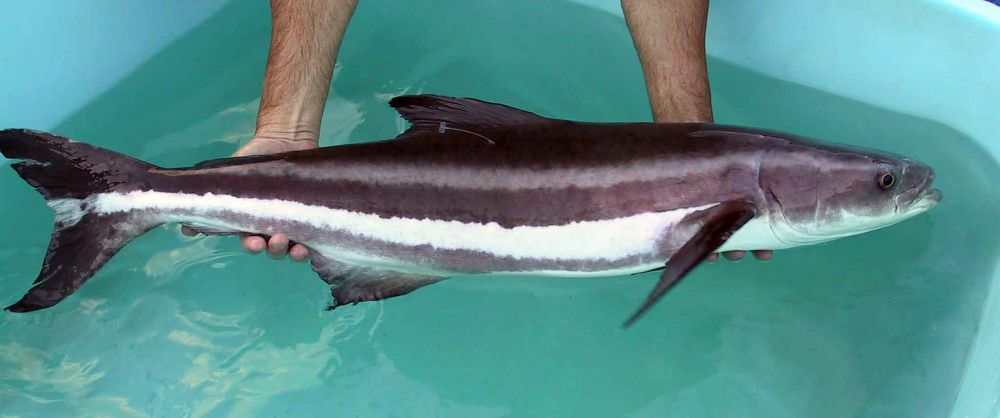
The Cobia fish belongs to the Rachycentridae family. it can be 1.8 m long and weigh 70 kg or more. it can live 12 years. The spawning period depends on the location. It can be fished all year round. The body is elongated and torpedo-shaped with a long flattened head. The eyes are small and the snout is wide. The lower jaw protrudes beyond the upper jaw. The skin is smooth with very small integrated scales. Easily distinguished by the first dorsal fin, composed of 7 to 9 strong and isolated spines, not connected by a membrane. The second dorsal fin is long with the front part elevated. The caudal fin is rounded to truncated in young fish and lunar in adults, with the upper lobe extending below the lower lobe. The origin of the anal fin is below the second dorsal vertex and the pectoral fin is pointed. Cobia doesn’t have an air bladder. The body is dark brown to silvery, paler on the sides and greyish white to silvery underneath, with two narrow dark bands extending from the snout to the base of the caudal fin. These dark bands are bordered at the top and bottom by lighter bands. Young cobia has dark side bands, which tend to become obscured in adult fish. Most fins are dark brown, with grey markings on the anal and pelvic fins.
The Cobia fish is a famous fish you can catch in Gulf Breeze.The Spanish Mackerel
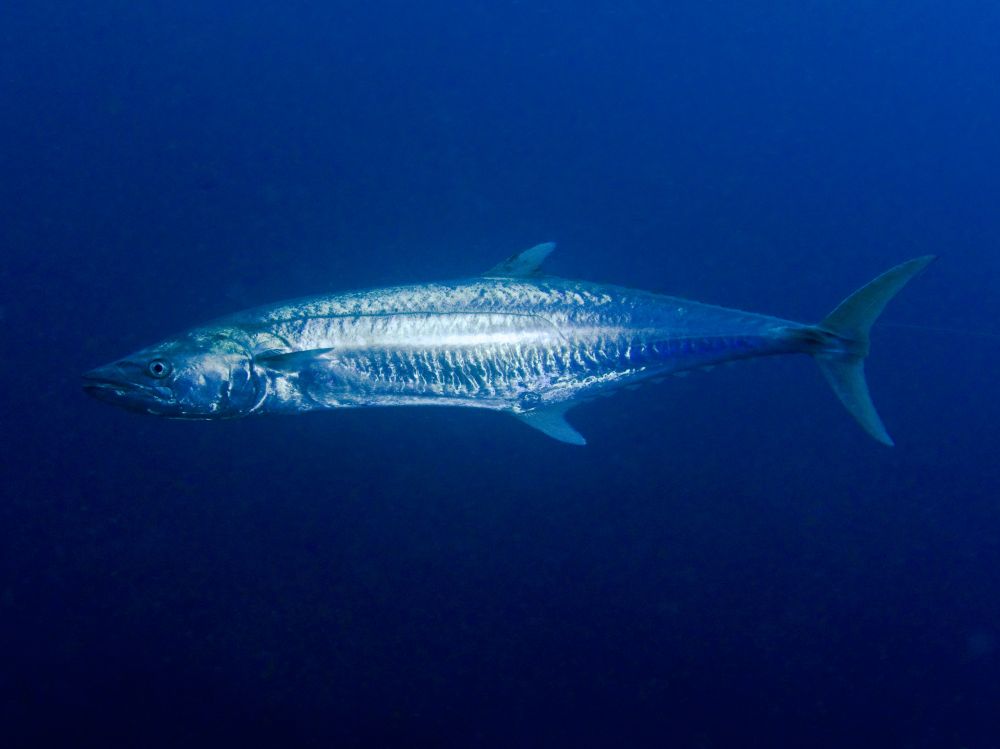
The Spanish Mackerel belongs to the Scombridae family. It has an average length of 50 to 80 cm for 3.2 kg. The maximum length recorded is 120 cm. Its maximum lifespan is about 20 years. They spawn from April to September. It is fished from March to September. Spanish mackerel has the contours of slender mackerel rather than bonito, its body being nearly 4½ at 5 times longer than depth. its two dorsal fins (like those of bonitoes) are barely separated, and secondly, because of its colorful pattern, its high slender dorsal shape and spotted sides distinguish it at first sight from our bonitoes, while its thin shape, long first dorsal fin and second dorsal fin contour distinguish it from the small tuna. Spanish mackerel is dark blue-green or blue-green above, pale below, like all Scombridae, and silvery, with many small oblong oval, dull orange or yellowish spots on its sides above the lateral line and below, which are highly diagnostic in nature. The fact that the membrane of the front third of its first dorsal fin is black, while its back part is greenish white, is also useful. The second dorsal and pectoral fins are pale yellowish with dark margins; the anal and ventral fins are white.
The Spanish Mackerel is a famous fish you can catch in Gulf Breeze.The African Pompano
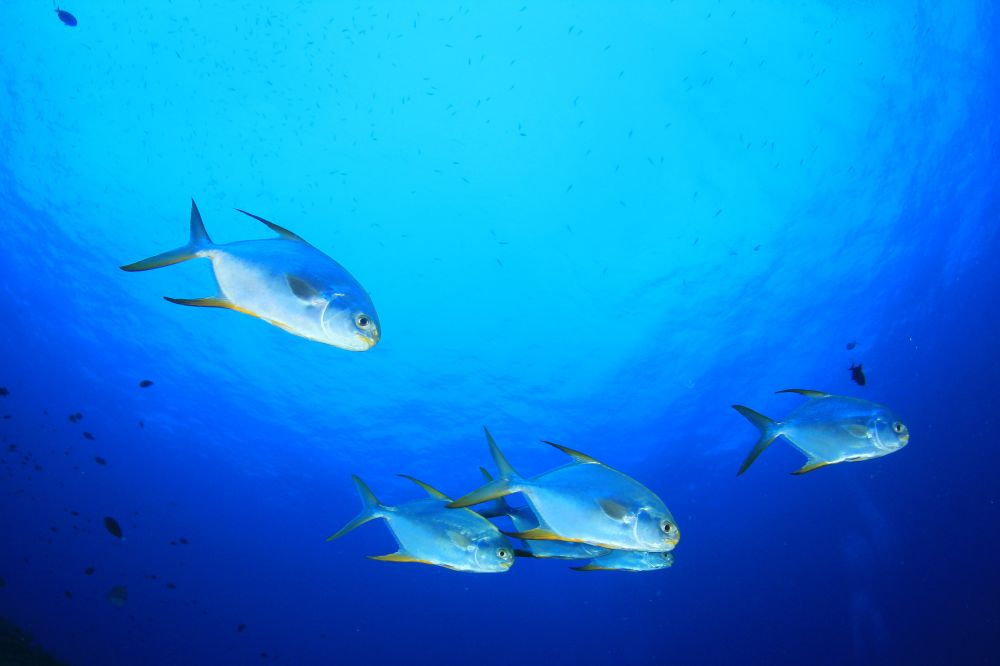
The African Pompano belongs to the Carangidae family. The maximum size can reach up to 1.50 m, but the average size is one meter. It breeds in spring and autumn. It can be fished during the hot seasons. Like many carangidae, it is a deep and laterally compressed fish, which have the deepest point of the body between the origin of the dorsal and anal fins and the head and tail tapering on either side. The dorsal and ventral profiles are also convex, the main characteristic of the adult being its more curved head compared to the more angular head profile of African Pompano. The species has 4 to 7 spines visible in the first dorsal fin, followed by a single spine and 18 to 20 soft rays in the second dorsal fin. The anal fin has two spines followed by 15 or 16 soft rays, while the pectoral fin is long and curved. The skin of the fish appears flake-free, but has tiny, embedded scales scattered over the body. The lateral line has a strong and moderately long dorsal arch, with a posterior section of 12 to 30 scales. Juvenile with filamentous rays at the anal and dorsal fins. Juveniles are characterized by their "spinning" appearance, characterized by filaments dragging anal and dorsal fins that retract with age. During maturation, the species also becomes more elongated and more similar to other types of jacks. The body is a silvery blue metallic to blue-green above, being the darkest on the head and upper shoulders, while the underside is more silvery. Juveniles have 5 chevron-sha
The African Pompano is a famous fish you can catch in Gulf Breeze.The Atlantic Sharpnose Shark
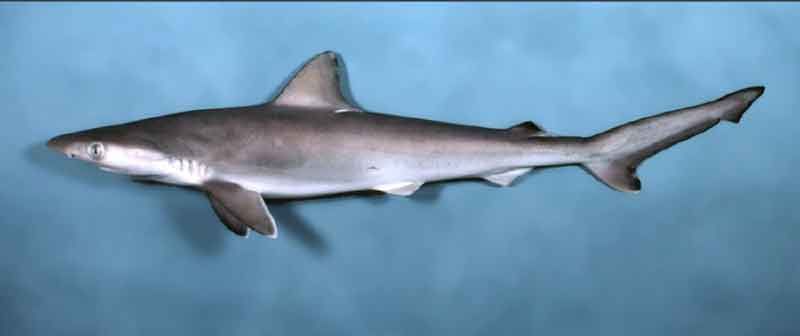
The Atlantic Sharpnose Shark belongs to the Carcharhinidae family. The average size of the Atlantic Sharpnose Shark is 90 to 99 cm. Their maximum size is 120 cm. In captivity it can live up to 4 years. The young are usually born in June. The Atlantic Sharpnose Shark can be fished all year round. The Atlantic Sharpnose Shark has a long snout and labial furrows that surround its mouth. The triangular teeth with smooth edges are identical on the upper and lower jaws. The livery of the Atlantic Sharpnose Shark can be brown, olive grey or blue grey, turning white on its belly. Adults may have some white spots, and in smaller individuals the edges of the dorsal fins and caudal fin are often black.
The Atlantic Sharpnose Shark is a famous fish you can catch in Gulf Breeze.The Blacktip Shark
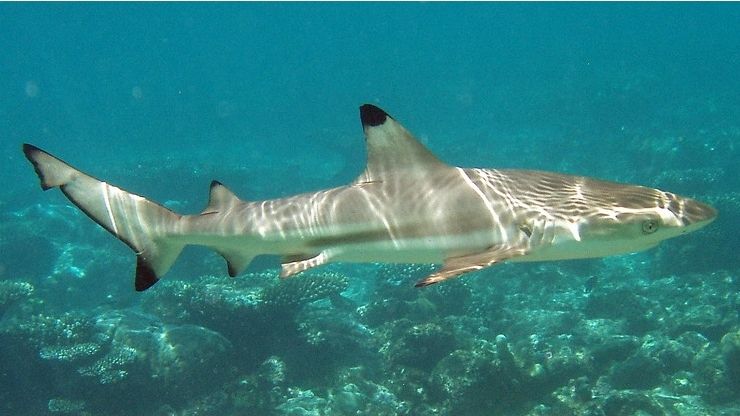
The Blacktip shark belongs to the Carcharhinidae family. If the maximum height is between 2.50 and 2.80 m, the average is more usually around 1.50 m, for a weight of 120 kg. The life expectancy of the blacktip shark is estimated at 12 years. Mating takes place from spring to early summer. It can be fished all year round. The blacktip shark has a relatively slender body with a long, conical snout. Its back and sides are ash grey; a light horizontal lateral stripe marks this area of the white belly quite slightly and a broad white line is often visible, belonging to the belly, coming from the caudal peduncle and stopping under the dorsal fin. The long nose is flattened dorso-ventrally and appears slightly rounded when viewed from below. The eyes are forward, relatively small. The mouth is wide. The nostrils are thin and you can't see the spiracles. The upper and lower teeth are quite similar, with a broad base and an almost straight point with finely crenellated edges. The pectoral fins are sickle-shaped. The first pointed dorsal fin with a pyramidal profile is inserted just behind the pectoral fins. The second dorsal fin is much smaller, facing the anal fin, of the same size. Just in front of the anal fin is a pair of small pelvic fins. Finally, the caudal fin is heterocercal with a fairly large upper lobe. All fins, except the anal, are bordered with a dark color on the trailing edge or apex, varying in intensity from one individual to another. The lower edge of the pectoral
The Blacktip Shark is a famous fish you can catch in Gulf Breeze.Our fishing forecast of Gulf Breeze indicates the best time to go fishing in this city.
Our fishing forecast of Gulf Breeze indicates the best time to go fishing in this city.
Our fishing forecast of Gulf Breeze indicates the best time to go fishing in this city.
